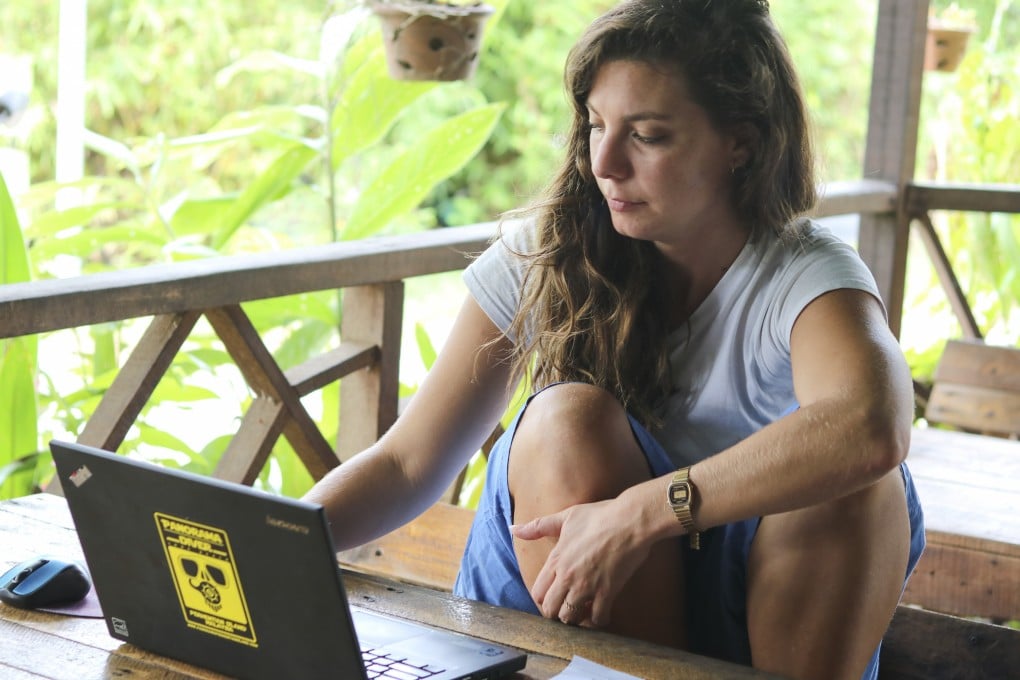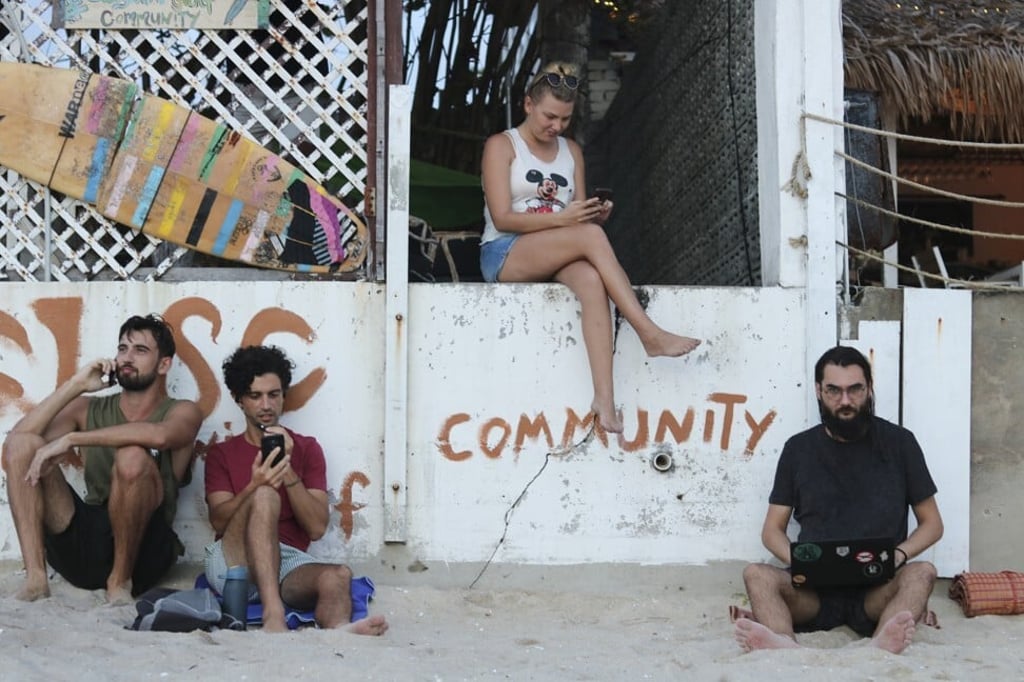Digital nomads find opportunities during the coronavirus pandemic, and adjust to living in one place rather than travelling
- A Parisian devised digital advertising strategies from Malaysia, while a freelancer stranded in Vietnam taught English online and covered the US election
- Adaptable by necessity, digital nomads may be the best equipped to work remotely and navigate newly fragile employment and freelance markets

Hannah Maussang worked in commercial advertising for five years before setting out to see the world. “I arrived in Malaysia in February,” says the Parisian. “I was going to travel around Southeast Asia before heading to Nepal, India, Bali and then on to South America.”
While stuck in a hostel on the holiday island of Langkawi, Maussang realised Anne Hallaert, a lockdown buddy and freelance translator from Belgium, was continuing to work by sourcing jobs via websites such as Upwork.
“I saw Anne and other friends making money throughout the MCO while I was doing nothing except spending my savings,” Maussang recalls.

Unwilling to go back to France, where many of her colleagues were losing their jobs, Maussang watched an online seminar about digital nomadism and decided to explore the possibilities. “At first, I was scared,” she says. “I know I have the skills, but I needed clients.”
Instead of reaching out to the multinationals that she had previously worked with, Maussang turned to independent companies that produce zero-waste or ethnic products. She made her approaches on Facebook and Instagram and secured contracts to devise digital advertising strategies for two companies.